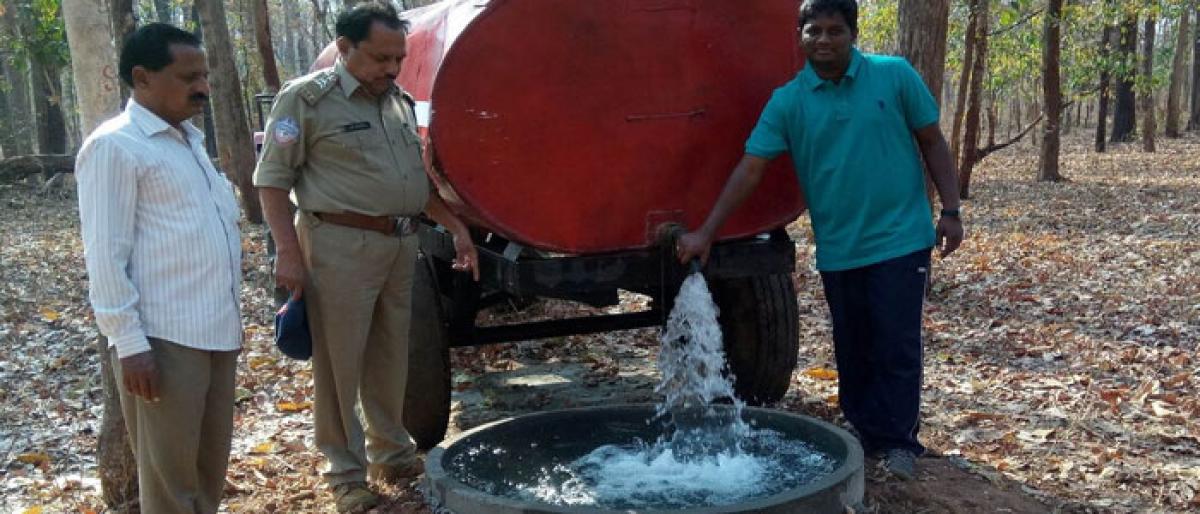Just In
Camera traps prove beneficial to Eturnagaram Wildlife Sanctuary


Camera traps set up in Eturnagaram Wildlife Sanctuary are yielding multiple benefits in terms of wildlife monitoring and protection for the district forest department.The department officials are able to learn about the need or scarcity of food and water for the wild animals in the forest area besides recording the movements of the animals.
Bhupalpally: Camera traps set up in Eturnagaram Wildlife Sanctuary are yielding multiple benefits in terms of wildlife monitoring and protection for the district forest department.The department officials are able to learn about the need or scarcity of food and water for the wild animals in the forest area besides recording the movements of the animals.
In addition to that they are also able to scout for the wildlife poachers with the help of the cameras.
The cameras have been set up mainly at the water bodies in the sanctuary as part of an initiative launched previous year.
The motion sensor cameras are weather-proof and can take pictures of animals wandering in the dark of the night, said Eturnagaram forest divisional officer (FDO) Pradeep Kumar Setty.Till now the wildlife camera traps have been placed at eight locations.
Efforts are on to fix the cameras all over the sanctuary in the days to come for an effective monitoring of the wildlife, he told The Hans India on Monday.Animals like Spotted Deer, Gaur (Bison), Porcupines, Bluemoon Nilgai, Nilgais, Civet cat and many others are caught on camera traps. A couple of weeks ago, a nine-member team of volunteers from forest department head office surveyed wildlife and their habitat, the FDO explained.
They surveyed the types of animals and locations of their movements based on pug marks to assess need for water bodies. Based on the trap camera inputs and the survey of the team, saucer pits and cement rings have been placed to address drinking water needs of the animals along with supply of fodder.
This summer, about 72 water points have been set up in north and south ranges areas in the sanctuary. 12 saucer pits, 25 cement rings and 30 percolation tanks have been established and they are being watered regularly by department personnel as per the directions of the district forest officer T Ravi Kiran.
It may be noted that In January 1952, the erstwhile Hyderabad government declared area forest area spread across the borders of Maharashtra, Chhattisgarh and Telangana along the river Godavari as a sanctuary because of its rich bio-diversity.
Again in 1999, the sanctuary has been notified as a protected area under Forest (Protection) Act, 1972.
Located at distance of 250 kilometres away from the State capital, Hyderabad, the sanctuary is the second largest one of the seven sanctuaries in the State. It has an expanse of 806.15 square kilometres after Pakhal Wildlife Sanctuary, which is spread over 860 square kilometres.
It is home to Leopard, Wolfs, Golden Jackals, Sloth bear, Nilgai, Sambar, Spotted deer, Chinkara, Indian Giant Squirrels Flying Squirrels and many kinds of birds, reptiles like Mugger crocodile, Python, Cobra, Kraite and others.

© 2024 Hyderabad Media House Limited/The Hans India. All rights reserved. Powered by hocalwire.com






